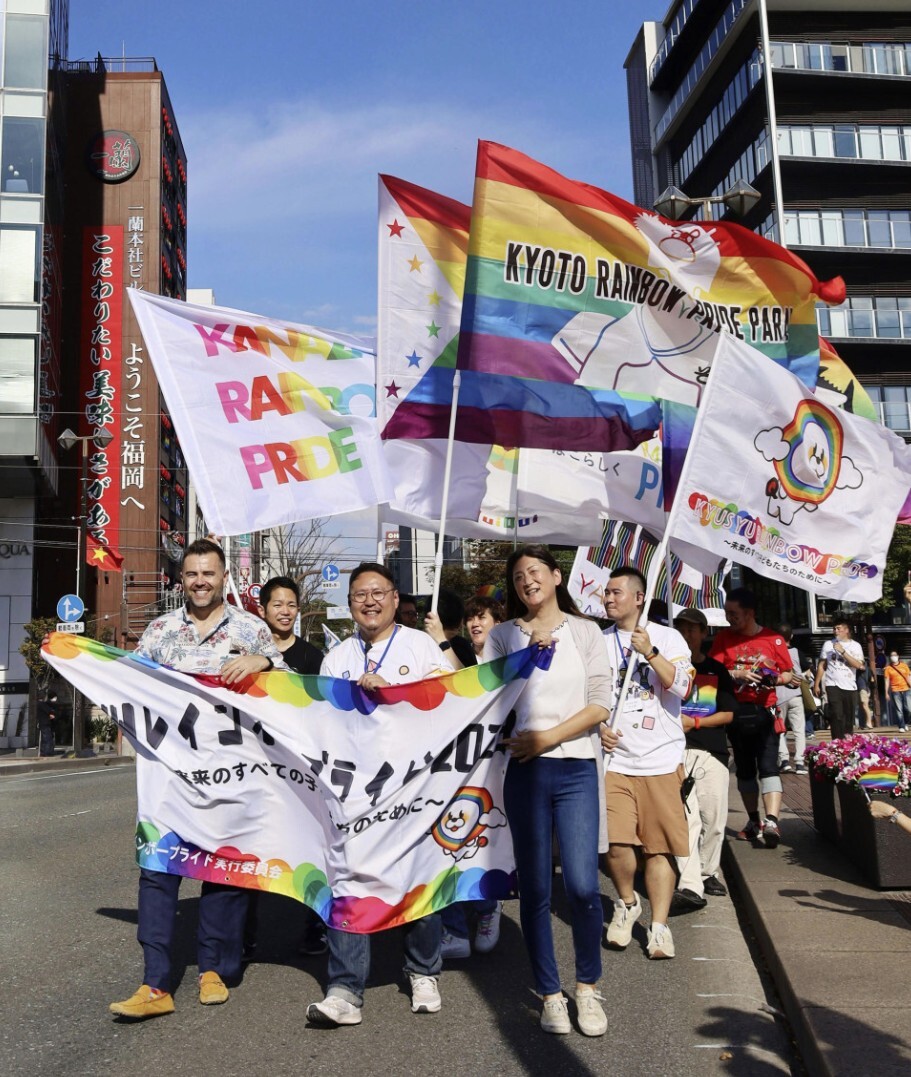In 2024, Japan, South Korea, and Thailand have all taken massive political and legal steps to either challenge archaic marriage laws or outright remove them. Same-sex marriage is finding its way in the east. Change is happening in the east, and it seems to all be happening roughly at the same time.
Thailand Set to Legalize Same-Sex Marriage
In Southeast Asia, Thailand is on track to legalize same-sex marriage, reports The Diplomat. Thailand’s recent passage of a significant marriage equality bill through its parliament marked a significant milestone for LGBTQ+ rights in the country. The legislation enables same-sex couples to legally marry and adopt children, thereby granting them the same rights as heterosexual couples.
It’s been a long road for this bill to reach fruition—versions of debate over the legality of same-sex marriage has haunted Thailand’s parliament since as early as 2014. Bills have been introduced repeatedly, and were often watered down or killed outright by conservative opposition. Bangkok drag bar owner Sean L’Estrange has been talking about this issue to anyone that would listen for years: he and his husband married in the United States, but are not recognized as together in Thailand, where they live and work.
“Can you imagine (U.S. President Joe) Biden getting on a plane and when he arrives in Thailand, (Jill) is not his wife anymore?” said L’Estrange in an interview with the Gay Times.
RELATED: “Bang Brave Bang Bravern” Is Close To Being A Gay Anime Masterpiece
Japan’s Sam-Sex Marriage Ban Ruled Unconstitutional
Among the world’s most advanced economies, Japan stands out as a country known for its slow political change. It’s the only G7 country without full recognition or legal protection for same-sex couples. Although some municipalities issue same-sex partnership certificates offering certain benefits, these do not provide equal legal standing.
Two recent rulings by Japanese district courts, one in Tokyo and the other in Sapporo, have challenged this treatment. The courts ruled that the nation’s ban on same-sex marriage is “unconstitutional”, finding that the ban violated citizens’ rights. This marks a pivotal moment in the push for legal recognition of same-sex unions in Japan.

People take part in the Rainbow Parade in Fukuoka to promote understanding for LGBTQ and other sexual minorities. (via Kyodo)
Prime Minister Fumio Kishida’s government faces mounting pressure, with public support for same-sex unions reaching up to 70%. Yet the traditional leadership of his party, the staunchly conservative “Liberal Democratic Party” (commonly abbreviated as LDP) has done everything it can to halt or pacify the movement.
The government has passed anti-discrimination laws based on sexuality as an attempt to “play both sides,” as it were. The legislation falls short of recognizing marriage equality, drawing criticism from LGBT+ activists. Despite this, the recent Sapporo court ruling expressed a strong expectation for parliament to eventually establish a same-sex marriage law, noting widespread public support.
South Korea’s Same-Sex Healthcare War
Finally, and most recently, there’s South Korea.
Amnesty International has intervened in a significant legal case before South Korea’s Supreme Court regarding the rights of same-sex couples. The case revolves around whether a same-sex partner should be eligible for public health insurance coverage as a dependent, akin to heterosexual couples.
The High Court’s landmark decision in February 2023, which ruled in favor of the couple (So Seong-wook and Kim Yong-min, who have fought this battle as early as 2021), emphasized that denying such rights to same-sex couples was discriminatory and contrary to the principle of equality. Despite this ruling, the South Korea National Health Insurance Service (NHIS) has appealed the decision to the Supreme Court, prompting Amnesty International to advocate for equality and inclusivity in healthcare and social security benefits for all individuals, regardless of sexual orientation.
The case gained international attention when NHIS revoked Seong-wook’s dependent status, previously granted to him as Kim’s same-sex partner. Despite initially registering as dependents and living together as a married couple, the NHIS backtracked on this decision, leading to a legal battle. The Seoul Administrative Court initially ruled against them, but the High Court’s decision overturned this ruling, recognizing the discrimination faced by same-sex couples. However, the NHIS’s appeal has escalated the case to the Supreme Court.
Source: The Diplomat, Gay Times, BBC, The Korea Herald, BenarNews




